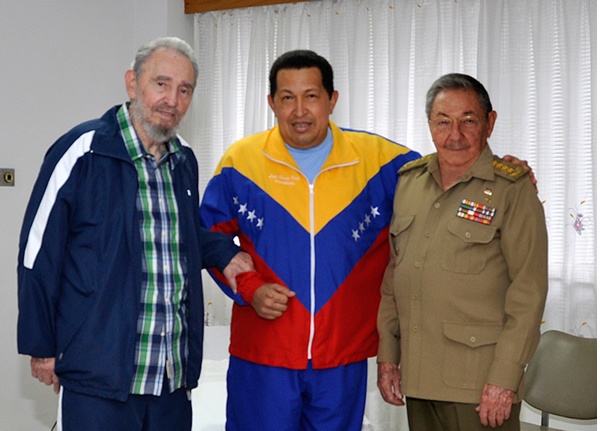On October 7, millions of Venezuelans will vote for the man who will lead their country for the next six years.
Hugo Chavez, Venezuela’s populist, authoritarian Goliath, is confident of victory. Despite battling cancer and working overtime to hide the consequences of 13 years of mismanagement, incompetence, and corruption, he believes his electoral strategy will deliver victory and make Venezuela’s march to socialism irreversible.
Foremost in cheering for Chavez is a veritable who’s who of international thugs: Iran’s Mahmoud Ahmadinejad, Syria’s Bashar al-Assad, Cuba’s Raul Castro, Belarus’s Alexander Lukashenko, and Russia’s Vladimir Putin. They are joined by a motley crew of American pseudo-celebrities such as filmmaker Oliver Stone and actor Sean Penn. Throw in former President Jimmy Carter, who labeled Venezuela’s election mechanics “the best in the world.” And if Chavez is to be believed, even President Obama is rooting for him.
This leaves our potential David—candidate for the Democratic Opposition Henrique Carpriles Radonski—largely orphaned by foreign leaders and celebrities. Yet since February, Capriles and his backers have waged an uphill fight on an unlevel playing field designed to favor the incumbent.
Capriles has nevertheless inspired hope for real changes that include a return of accountability, transparency, efficiency, rule of law, social reconciliation, and improved relations with the U.S. Polls indicate a true closing of the electoral gap, and many now see Capriles as a genuine threat to Chavez’s once iron grip.
It is clear that while the election process in Venezuela has so far been unfair, biased, and unequal, on October 7 free, well-ordered polling, large turnouts, and an honest vote count may yet save the day. Clear red lines to watch for include fraud, intimidation, and violence.
The Venezuelan people must be allowed to decide if they wish to live for six more years with their socialist Goliath or take a chance on a democratic David. One can take consolation that throughout history, right has often prevailed over might.































